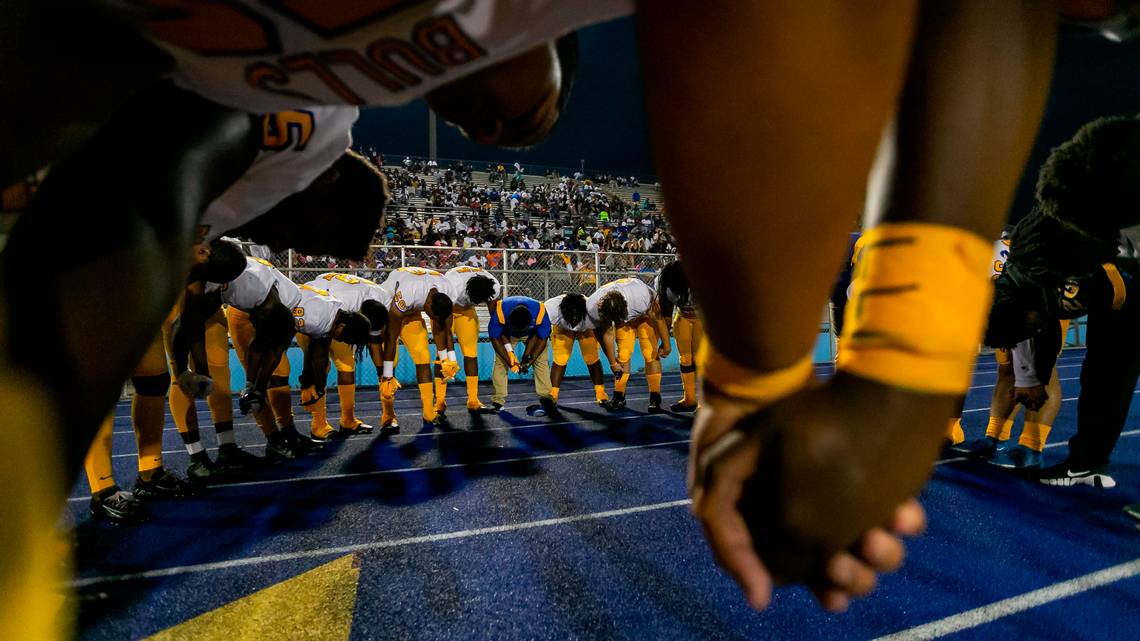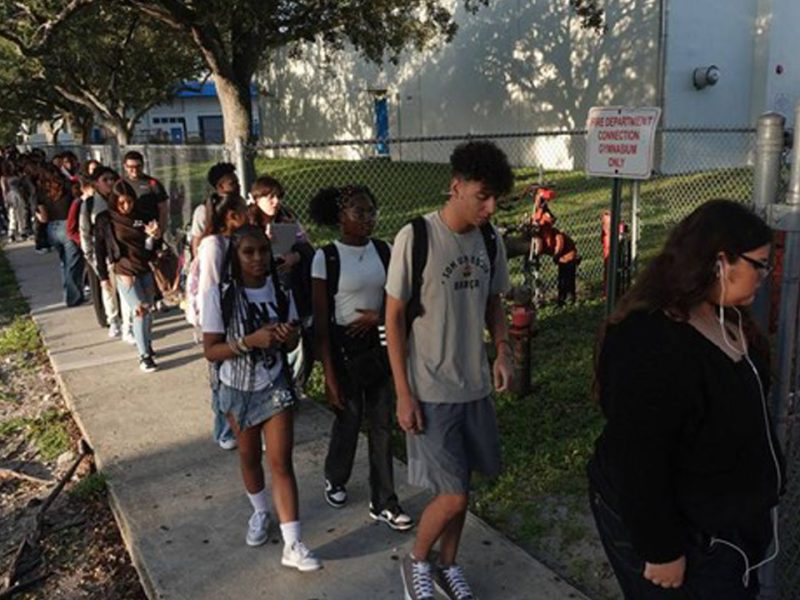
Florida backs Christian school in legal fight over using PA system for pregame prayer
Miami Herald | By Jim Saunders, News Service of Florida | August 18, 2022
TALLAHASSEE The Florida Department of Education is backing a Tampa Christian school in a legal battle about whether the school should have been allowed to offer a prayer over a stadium loudspeaker before a 2015 football championship game.
Attorneys for the department filed a 28-page brief this week at the 11th U.S. Circuit Court of Appeals blasting the Florida High School Athletic Association, which rejected Cambridge Christian School’s request to offer a prayer before the high school game in Orlando.
Cambridge Christian challenged the constitutionality of the association’s decision and went to the Atlanta-based appeals court after U.S. District Judge Charlene Edwards Honeywell in April said the association did not violate the school’s First Amendment rights.
In this week’s brief, attorneys for the Department of Education wrote that the association “completely disregarded core First Amendment principles when it refused to allow Cambridge Christian School to pray over the loudspeaker at its 2015 championship game solely because of the religious message of the prayer, even though secular, non-governmental messages were allowed.”
cambridge-christian-school-v-florida-high-school-athletic-association“A responsible government entity would have handled this matter with due regard to the weighty interests at stake by seeking at the outset to achieve a resolution that took all feasible steps to accommodate the religious liberty interests at stake,” the friend-of-the-court brief said. “FHSAA entirely failed at that constitutionally mandated task. This court should reverse the decision below and enter judgment for CCS [Cambridge Christian].”
State law gives the association, a nonprofit organization, responsibility for governing high school sports. In her April ruling, Honeywell said the association is a “state actor.” She also noted that players and coaches from Cambridge Christian and its football opponent, Jacksonville’s University Christian School, met on the field of Camping World Stadium to pray before and after the 2015 game.
“The issue before the court is whether the First Amendment required the FHSAA to grant the teams unrestricted access to the PA system to deliver the prayer over the loudspeaker during the pregame,” Honeywell wrote. “Thus, the questions to be answered are whether the inability to pray over the loudspeaker during the pregame of the state championship final football game violated CCS’s First Amendment rights to freedom of speech and free exercise of religion. … [The] court concludes that the First Amendment does not apply because the speech at issue is government speech, but even if some portion of the speech is considered private speech, the court finds no constitutional violation occurred.”
The legal fight has lasted for years. Honeywell initially dismissed the case in 2017, but the appeals court in 2019 overturned the dismissal and sent the case back to Honeywell for further consideration. That led to her April judgment in favor of the association.
In 2019, then-Education Commissioner Richard Corcoran tried to pressure the association to reconsider policies that prevented Cambridge Christian from offering the prayer over the loudspeaker. The association responded at the time by saying it would allow the dispute to be resolved in court.
The Department of Education brief this week pointed to a legal standard known as “strict scrutiny,” which it said applies in cases about actions that “burden” religious speech.
“Such actions may thus be justified only if the government proves that they are narrowly tailored to serve compelling state interests,” the brief said. “But FHSAA failed to take this analysis seriously. It failed to offer a genuine compelling state interest in restricting the speech at issue and refused to consider any of the numerous, reasonable alternatives that it was required to consider under strict scrutiny.”





